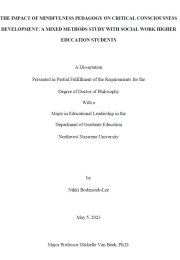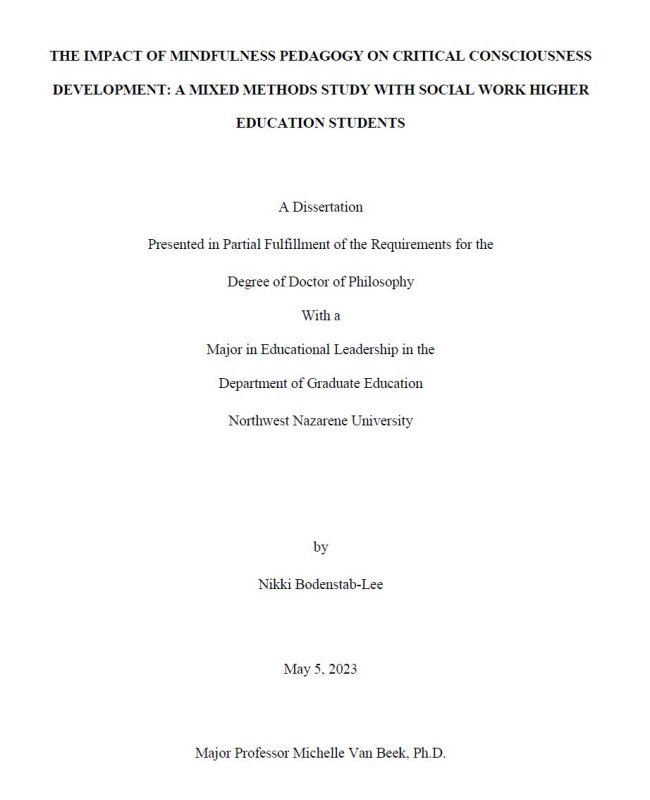- Resource Types
- Resource Languages
- Institutional Repository
 Visit the home page
Visit the home page
About Site Language
WHDL is viewable in multiple languages. Use the pull-down menu to select a language to view the site.
I changed my language, but I’m still seeing resources in the other languages?
If a resource or text has not been translated into your selected language, it will appear in the initially added language. We are always looking for help translating these resources. If you can help, contact us!
WHDL - 00018801


click to copy
Bodenstab-Lee, N (n.d.). The impact of mindfulness pedagogy on critical consciousness development: A mixed-methods study with social work higher education students .
Bodenstab-Lee, NicoleThe impact of mindfulness pedagogy on critical consciousness development: A mixed-methods study with social work higher education students . , n.d.
Bodenstab-Lee, NicoleThe impact of mindfulness pedagogy on critical consciousness development: A mixed-methods study with social work higher education students . , n.d.
Bodenstab-Lee, NicoleThe impact of mindfulness pedagogy on critical consciousness development: A mixed-methods study with social work higher education students . , n.d.
One accreditation-mandated outcome of social work education is to increase students’
understanding of social injustice and prepare them to work to reduce such injustices. This has been called critical consciousness (CC). This study explored the relationship between
mindfulness as a pedagogical tool to support CC development in social work students.
Mindfulness is a non-judgmental awareness of the present moment. This mixed methods
convergent design study with higher education social work students (n=138) showed no
statistically significant relationship between a mindful disposition and CC, as measured through the Mindful Attention and Awareness Scale and the Critical Consciousness Inventory. However, qualitative analysis of open-ended survey responses (n=128) and semi-structured interviews (n=13) with higher education social work students brought to light ways students identified mindfulness as an important support to their CC development. The conclusions from the study include: (1) Participants saw mindfulness as an important support to their conscientization; (2) Mindfulness, as nonjudgmental attention alone, does not lead to critical consciousness; (3) Students appreciate different types of mindfulness; (4) Students grew into the habit of mindful attention and reflection that was helpful to conscientization; and (5) In order to support CC development, mindfulness should be framed and modeled with external relational components to aid in a clearer understanding of self, others, and the context of the situation. These conclusions add empirical support to the theoretical literature that educators should incorporate mindfulness pedagogies in the classroom to support students’ CC development.
This material is used by permission of the rightsholder in accordance with the terms of the relevant content release. As a user, you have permission to use this content and download a copy for non-commercial use only. Downloading multiple quantities of this resource is expressly forbidden.
155 Resources
1993
2017
2018